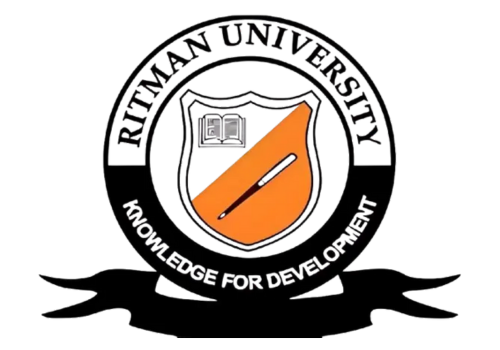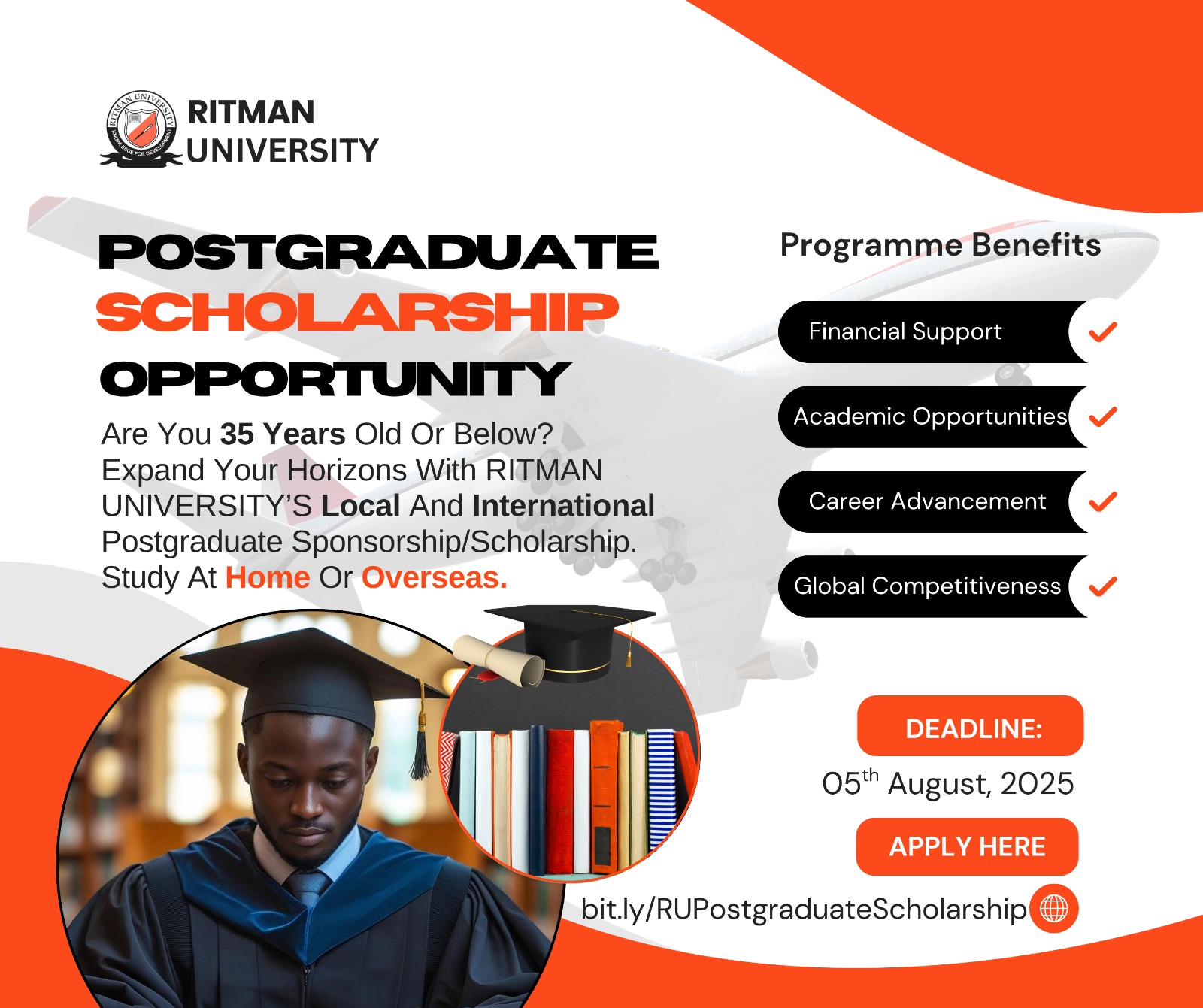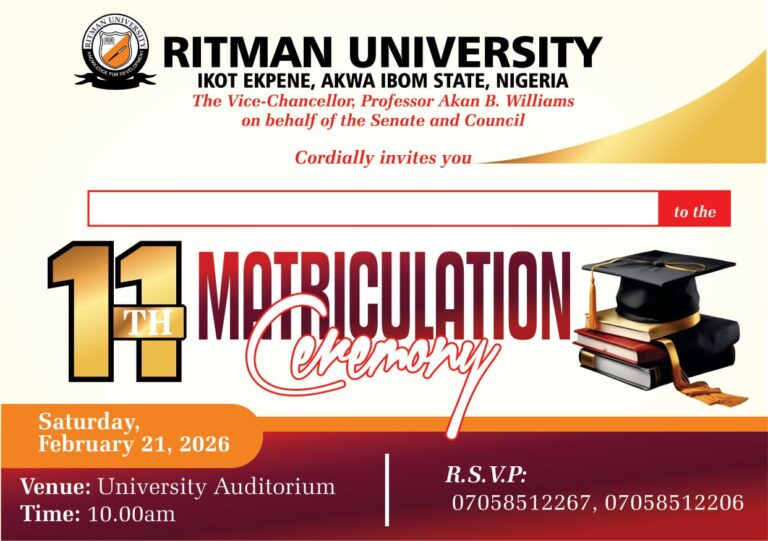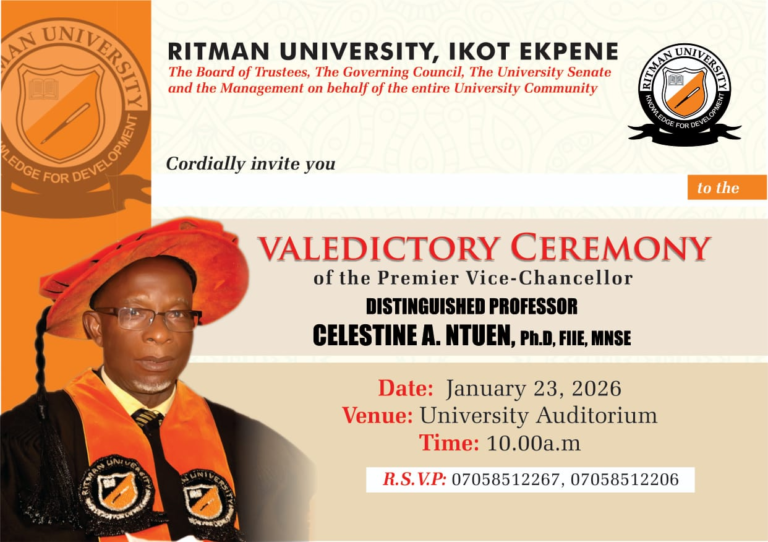In a bold and forward-thinking move to invest in human capital and strengthen its academic and professional community, Ritman University has unveiled a Postgraduate Scholarship Program aimed at empowering exceptional graduates to pursue advanced studies in reputable universities across the world.
The initiative is designed not only to provide financial and academic support to deserving candidates but also to create a pathway for returning scholars to contribute their expertise and innovation to the continuous growth of Ritman University.
Ritman University has long been committed to academic excellence, intellectual growth, and community impact. With this scholarship, the institution is extending its vision beyond the walls of its own campus, recognizing that exposure to diverse educational systems, cutting-edge research, and international collaboration can significantly broaden the capabilities of its scholars.
Selected postgraduate scholars will have the opportunity to study in other universities—both within Nigeria and abroad—across various disciplines. From science and technology to the arts, business, and social sciences, beneficiaries will gain access to high-quality programs that align with their career aspirations and the developmental needs of the university.
The Postgraduate Scholarship Program is fully funded, covering tuition fees, accommodation, living expenses, and research support where applicable. This ensures that recipients can focus wholly on their studies without financial distractions. In addition, the university will provide mentorship and regular check-ins throughout the scholars’ academic journey, fostering a sense of connection and shared purpose.
In return for this investment, scholarship recipients will be required to return to Ritman University upon completion of their studies to render services in their area of expertise for a stipulated period. This mutual arrangement ensures that the knowledge, skills, and international exposure gained are reinvested directly into the university’s mission of delivering top-tier education and innovative research.
The service commitment will vary depending on the terms agreed upon, but it typically includes teaching, research, mentoring younger scholars, and contributing to strategic institutional projects. This approach allows Ritman University to sustain a culture of academic excellence while empowering returning scholars to influence and inspire the next generation of students.
Speaking on the vision behind the scholarship, the University Management emphasized that the program is not merely about funding education, it is about building a network of globally competent professionals whose expertise will be channeled toward local development.
“We believe that great institutions are built by great people. This program ensures that our graduates not only have access to world-class education but also return with the mindset and skill set to solve real problems. The ripple effect will be felt not only in Ritman University but across our society,” the management noted.
The program is open to all graduates nationwide who have demonstrated academic excellence, leadership qualities, and a commitment to community service. The selection process is rigorous, involving academic evaluations, personal interviews, and assessments of the candidates’ potential for impact.
Preference is given to candidates whose chosen fields of study align with the university’s priority growth areas, ensuring that the knowledge brought back will have direct and measurable benefits.
By investing in the education of these graduates and creating a structured channel for their return, Ritman University is setting a standard for how institutions can balance global exposure with local impact. The Postgraduate Scholarship Program is poised to not only elevate the profiles of individual scholars but also to strengthen the university’s capacity for research, teaching, and innovation.
In a world where the gap between local challenges and global solutions continues to widen, Ritman University’s initiative demonstrates that it is possible to bridge that gap, one scholar at a time.




